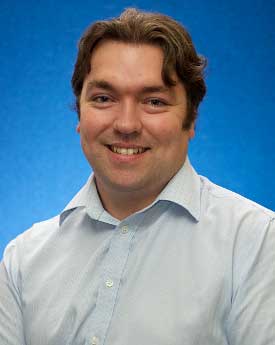
Dr Vincent Reid – Reader – Principal Investigator
My research focuses on various developmental aspects of social perception and cognition during early development, namely: (1) Social-cognitive processes from biological motion detection and interpretation through to the perception of human action; (2) Methodology and recently (3) Late term fetal development. I use a number of techniques in order to investigate these issues, including brain derived measures (EEG/ERP), behavioural paradigms and interventions.
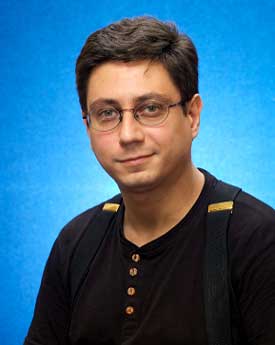
Dr Eugenio Parise – Lecturer – Co Investigator
My research focuses on infant development. In particular I am interested in the development of social cognition and everything related to early communication. In my studies I use a variety of approaches, from behavioral to neroscience methods such as EEG/ERP and NIRS. Ostensive communication, referential understanding, language development and categorization in young infants are the topics I investigated recently.
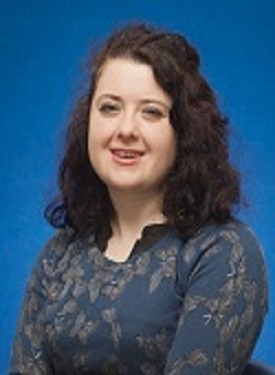
Áine Ní Choisdealbha – Research Fellow, Economic and Social Research Institute
I am a finishing student in the Developmental Sciences lab, having undertaken a PhD with Vincent Reid and Gert Westermann from October 2012. The work is due to be examined in early 2016. Before studying at Lancaster, I completed a B.A. (Mod) in Psychology and an M.Sc. in Neuroscience at Trinity College Dublin. During these studies I worked on projects involving body perception, affective perception, behavioural economics, and methods of EEG analysis.
The work undertaken during my PhD studies focused on two related questions. The first was, how does processing of action as both a semantic and a motor process emerge in infancy? The second was, can infants incorporate information about actions unrelated to the action’s goal into their representations? I addressed these questions by recording EEG and eye-tracking data from infants as they observed other people engage in tool-mediated actions that had the same goal but in which the tools were held or manipulated differently. I compared these measures of perceptual and cognitive processing with observational data on the infants’ own abilities to manipulate objects and tools. Understanding how action is represented in the infant brain is important for understanding how infants begin to learn about others’ internal states, and how they learn about their own potential to act upon the world in different ways. This work was funded by the European Commission via an FP7 Marie Curie “People” action and included a research visit to Radboud University Nijmegen under the supervision of Drs Sabine Hunnius and Sarah Gerson.
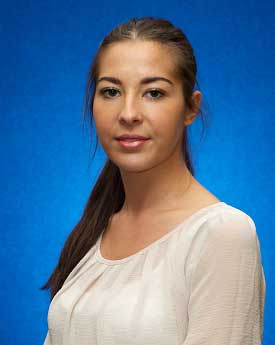
Dr Kirsty Dunn – Research Associate
My research interests lie in the development of cognitive capacities both in utero and throughout the first year of life. I obtained my PhD in Developmental Psychology in 2015 under the supervision of Professor Gavin Bremner investigating infant understanding of numeracy and object permanence. In addition, these projects aimed to investigate the use of both Infant social looking and the effects of the social environment when measuring these aspects of cognition. Since 2014, I have been working with Dr Vincent Reid investigating the understanding of light in the late pre-term fetus funded by the ESRC Transformative grant. I am currently working on projects within the Lancaster University Linguistics Department involving the use of EEG and eye-tracking methodologies.
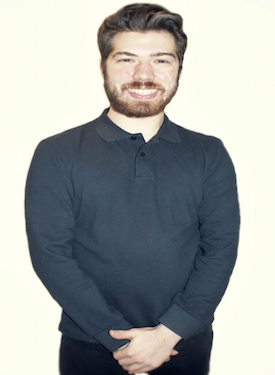
David Elliot – 1+3 ESRC Studentship Researcher
I am interested in neuroimaging methodology and developmental disorders. I am funded by the Economic and Social Research Council (ESRC) as part of the North West Doctoral Training Centre (NWDTC). My work aims to improve EEG/ERP (event-related potential) methodology, by investigating factors that influence an infant’s ability to complete a study. I will also be looking at new methodological and statistical approaches for neuroimaging research with infants. Through my research, I aim to improve how we conduct neuroimaging studies and understand both typically and atypically developing populations.
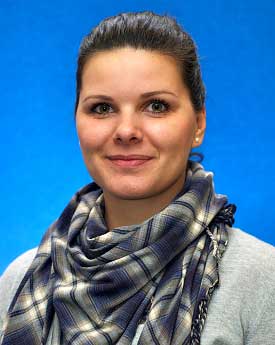
Katarina Kaduk – Marie Curie Early Stage Researcher
In August 2011, I obtained my Diploma in Psychology at the University of Potsdam. During my studies, I gained valuable experience in preparing, conducting, and analysing psychological studies with infants and adults. I used both EEG- and behavioural methodologies in well-established research groups in Developmental Psychology and Cognitive Neuroscience (e.g. Max Planck Institute for Evolutionary Anthropology, Department of Cultural Ontogeny; Max Planck Institute for Human Cognitive and Brain Sciences under the direction of Dr. Tricia Striano & Dr. Vincent M. Reid; Institute of Child Health – Behavioural and Brain Sciences Unit under the direction of Dr. Jessica Hobson; and University of Potsdam – Developmental Psychology, BabyLab under the direction of Prof. Dr. Birgit Elsner). After my studies I worked as a research associate at Durham University, Developmental Psychology, EEG Baby-Laboratory under Dr. Vincent Reid’s supervision which was funded by the ESRC.
My current project as a Marie Curie Early Stage Researcher at Lanaster University seeks to build knowledge in how language derives from understanding the content of action in early development.
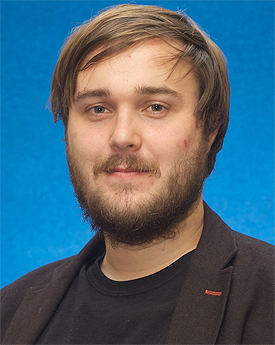
Christian Kliesch – Phd Student
I am interested in how infants use and understand communication, i.e. communication about communication that tells them that they are communicated with.
Current Teaching: I currently teach seminars in Psych 101 – Introduction to Psychology and Psych 205 – Developmental Psychology.
Qualifications: 2012 Master of Science Evolution of Language & Cognition, University of Edinburgh, Scotland.MSc Thesis: Implicit and explicit iterative mind-reading. 2011 Master of Arts in Psychology, University of Glasgow, Scotland.Final year project: Activation of gender stereotypes in English language comprehension—A study using the visual world paradigm.
Career Details: 2014-2014: Research Assistant, Department of Neuropsychology, Max Planck Institute for Human Cognitive and Brain Sciences, Leipzig, (DE). 2013-2014: Intern | Research Assistant, Department of Developmental and Comparative Psychology, Max Planck Institute for Evolutionary Anthropology, Leipzig, (DE).

Szilvia Linnert – PhD Student
The focus of my research is into the mechanisms of visual categorization. I use electrophysiological techniques to assess how top-down factors influence visual processing and the early visual event-related potentials.

Estefania Dominguez Martinez – PhD Student
I am interested in infant EEG methodologies. During my PhD, I am looking into how to improve the current infant ERP methodology by using eye tracking information during and after the recording to obtain better quality data.
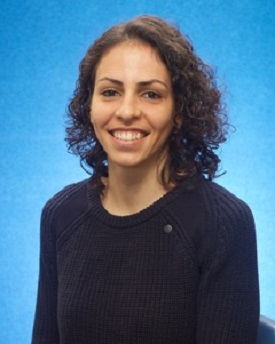
Dr Louah Sirri – Research Associate
My research is focused on word learning and attention development in preverbal infants. My objective is to investigate the impact of social cues on language processing. As tools, I will be employing EEG, eye-tracking and NIRS techniques.
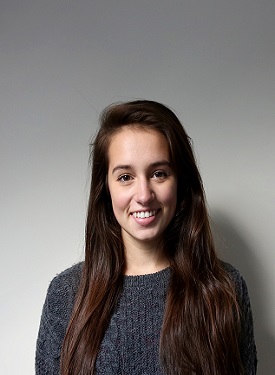
Ellie Smith – PhD Student
My current research interests seek to further understand the relationships between the ERPs and neural oscillations of parents and their offspring and their association with psychosocial elements, such as attachment type, using the EEG/ERP methodology. I am currently funded by the Leverhulme Trust and aim to address whether adults with Schizotypy display similar abnormalities to first-degree relatives of individuals diagnosed with schizophrenia; and thus, whether the offspring of these individuals also display these neural abnormalities in some way.
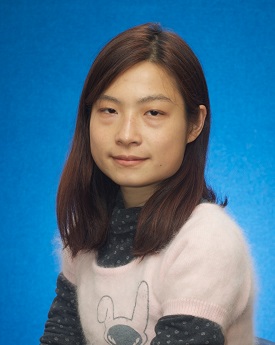
Pei-Wen Yeh – Phd Student
I obtained my master diploma at National Yang-Ming University, Taiwan. During my study, I researched speech perception in Mandarin-speaking preschoolers. I conducted EEG and behavioral measurements with the research group at Brain and Language Laboratory in Academia Sinica, Taiwan (under the direction of Dr. Chia-Ying, Lee). After graduating, I worked as a research assistant at the Laboratory, and also extended the issue of speech perception and word learning on typically developing children and children with language deficits (ex: poor reading, specific language impairment). My current project as a PhD student at Lancaster University is to examine the developmental change in integration of emotion perception, supervised by Dr. Vincent, Reid and Dr. Elena, Geangu.
